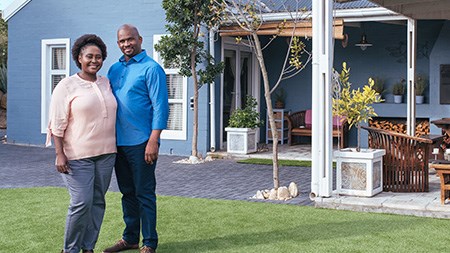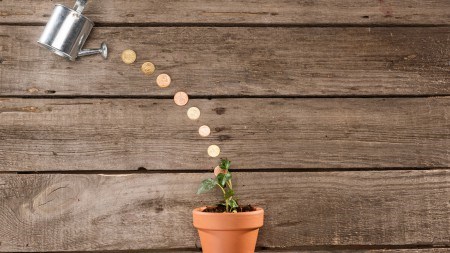No deposit? No problem. You can still buy property without a deposit in South Africa. Here are 4 ways to get on the property ladder without putting any money down.
According to property expert David de Waal, the banks may sometimes grant 100% bonds that cover the full purchase price of the property.
“Many banks will insist that the buyer puts down some amount as a deposit, and also pays for the transfer costs,” he said.
Of course the purchase price and transfer aren’t the only costs involved, and it’s probably a good idea to make sure that you’ve factored all aspects of home ownership into your decision before you start. (See, for example, our bond affordability calculator, and bond repayment calculator)
And what if you find that you can afford to buy – but you don’t have the cash ready when it comes to the deposit?
No deposit for a house? No problem
There are three common ways to buy a house without paying a full deposit personally.
- Buy with your partner/spouse to divide the deposit amount between you
- Buy an undervalued property
- Take out another loan to cover the deposit amount
It is also possible under certain circumstances to negotiate with the bank so that you do not require a deposit.
All four options for buying without a deposit, explained
David suggested four possible solutions – save now to buy later; buy with a partner; buy a bargain property; or finance the deposit (although this last comes with a caution).
1. Wait, while you save up
He said that saving for the deposit is the ideal first choice.
“It’ll stand you in good stead when the time comes to buy because the bank will see evidence of your ability to save consistently, and it will therefore be more likely to grant you a bond.”
But the downside here, of course, is that saving a large enough amount could take quite a while – and you could miss out on buying your dream home in the meantime.
Don’t give up hope though ...
2. Partner up
When partners buy together, said David, each party would generally be expected to contribute a share of the deposit and the bond repayments.
“When assessing affordability, the bank will take both partners’ incomes into account, and this will increase the chances of being granted a bond,” he said.
“Spouses are natural partners for property ownership but more thought is required when you buy with friends or distant relatives. You need to consider what will happen to the property ownership if the partners fall out or one of them wants to sell due to changed circumstances.” (We recently touched on what unmarried couples should consider when they buy in partnership – see “Remain sane when buying together”.)
3. Buy a bargain
This is one option that could help you avoid raising a deposit.
David said that banks like to see deposits for two reasons: they show that you’re in the habit of saving (which means that you’re financially disciplined, so you’re probably going to be able to make your bond repayments every month), and they provide the bank with a measure of security (if you do happen to default on your loan repayments, the bank has a cushion: if it needs to attach and sell the property, it’ll be able to recover the outstanding loan amount as well as the additional costs incurred).
“In practice, if you buy a property that’s priced way below its market value, the bank is more likely to grant a 100% bond because it knows that it will get its money back if it’s ever forced to sell it,” said David.
READ MORE: Tips for young buyers on saving for a deposit
4. Finance the deposit
David said that while he doesn’t recommend taking a short-term loan to raise the deposit, “In some cases it may be feasible.”
He said that the bank that offers you the bond probably won't also offer you a loan for the option, but that you might be able to raise a loan from another institution. He warned, though, that a short-term loan, “Would attract a high interest rate, and you’d have to look at your finances carefully to be sure that you could afford both monthly repayments.”
He reiterated, though, that saving up for your deposit is the recommended solution.
“It may take a while, but it’ll teach you financial discipline, and you’re much more likely to be granted a bond when the time comes to buy,” he said.
In Summary
- Save for the deposit
- Buy the house with a partner to divide the deposit
- Look for a house priced below its value
- Get a short term loan you can afford to pay back to raise the deposit
Private Property makes it efficient and convenient to locate your dream home by listing hundreds of the best deals and beautiful homes actively on sale right now.



